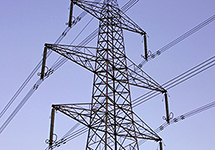Challenges of the Nuclear Fuel Cycle
By Morton Halperin and Yoriko Kawaguchi
October 28, 2014
Read the Full Report:
Security Implications of the Nuclear Fuel Cycle.
View the full article from Kyodo News:
“OPINION: Japan should be a good example of nuclear nonproliferation“

Source: WikiMedia Commons
Rarely has the future of the nonproliferation faced such divergent futures. An agreement between Iran and the so-called E3/EU+3 might offer a welcome boost to efforts to prevent the further spread of nuclear weapons. At the same time, North Korea’s nuclear weapons development may be a serious blow to those same efforts. This year, South Korean President Park Gyun Hee warned that, in the event of another North Korean nuclear test, “It would be difficult for us to prevent a nuclear domino from occurring” in Northeast Asia.
Of the many interests that the United States and Japan share, preventing the further spread of nuclear weapons is among the most important. Given the divergent possibilities represented in Iran and North Korea, leaders in the United States and Japan must think carefully about our own choices in the field of nuclear energy.
There continues to be a vibrant debate within Japan – and the United States as well — about the wisdom of reprocessing spent fuel to recover plutonium. Too often this debate is only about the economic, energy and environmental questions. These are important factors, to be sure, but as professionals who have spent our careers advancing peace and security, we believe it is essential that these debates also include the inevitable security implications of our nuclear energy decisions.
About the Monterey Eminent Persons Group
We serve as co-chairs of a group convened by the Monterey Institute of International Studies, and funded by the John D. and Catherine T. MacArthur Foundation that has worked over the past year to understand how to weigh security factors in our energy policy. We are now releasing a report entitled, “Security Implications of the Nuclear Fuel Cycle.” Our goal was not to support or oppose any specific approach to the nuclear fuel cycle, but rather to ensure, whatever policies are chosen, that security considerations are central part of any discussion in Washington and Tokyo.
Setting the Standard in Policy
By security considerations, we should be clear that we do not mean the possibility that Japan might build nuclear weapons. There is no mainstream constituency for building nuclear weapons for Japan, nor would such a policy make any sense at all. Debates about a Japanese bomb actually distract from the real security issues at stake.
It is more important, in our opinion, to focus on how other states look to our countries as technological leaders and models. This means making sure that our energy policies set a good example in terms of safeguards, transparency and restraint. We applaud the recent decision of Prime Minister Abe and President Obama to return to the United States a quantity of fissile material including weapon-grade plutonium that had been used for civil research in Japan. Tokyo and Washington must also focus on how to create international and multinational measures that will incentivize new nuclear nations to rely on the international market for fuel cycle services, rather than beginning their own national enrichment or reprocessing programs.
There is a natural tendency to ask whether such considerations should shape what energy future the Japanese people choose for themselves. Such a question is better discussed among Japanese in a comprehensive way that includes the many relevant considerations, rather than a binational group of security experts. But whatever path the people of Japan choose for themselves, it is in the interest of both our countries to ensure due consideration of our shared interest in preventing the further spread of nuclear weapons.
The authors of the report, Dr. Morton H. Halperin and Professor Yoriko Kawaguchi, are the co-chairs of the Monterey Eminent Persons Group on the Security Implications of the Nuclear Fuel Cycle.
